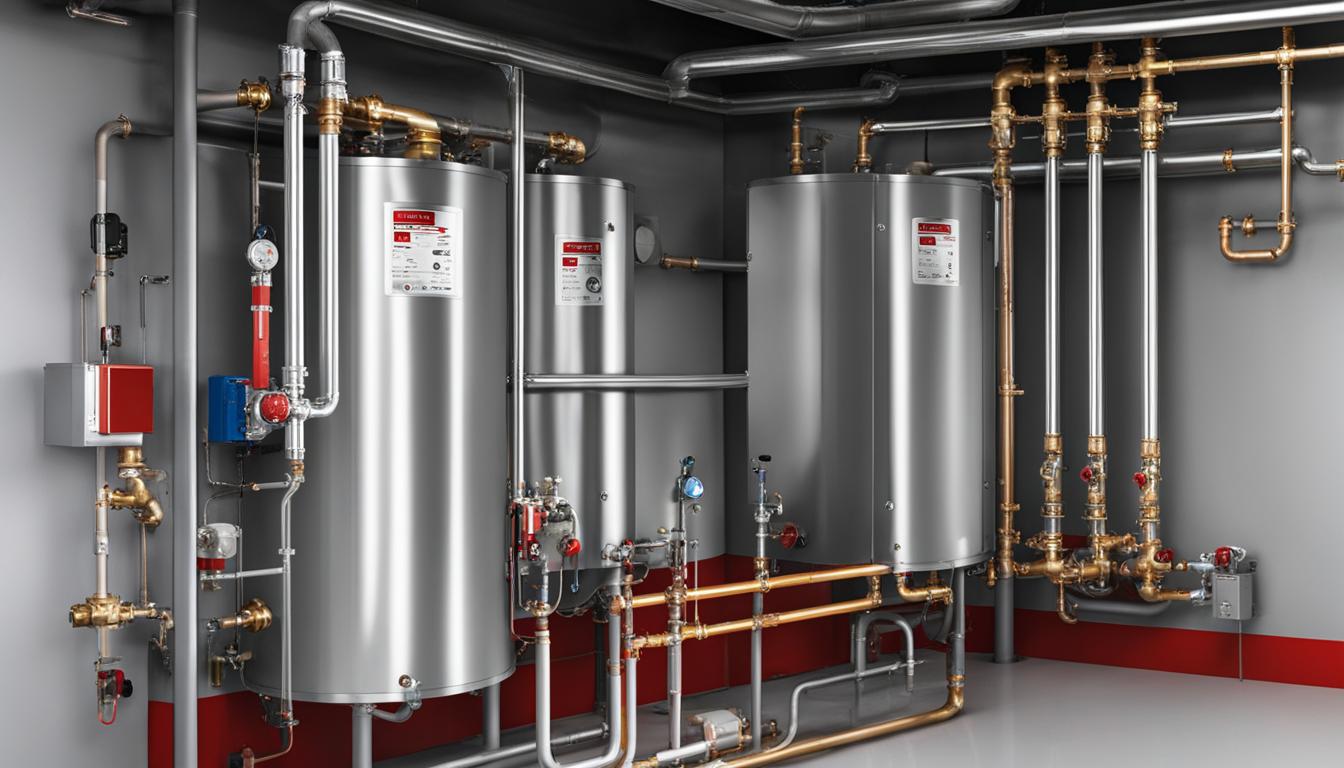When it comes to selecting the right water heater for your home, one of the most important decisions is choosing between a traditional tank water heater and a tankless water heater. Both options have their pros and cons, and the right choice largely depends on your household’s hot water needs, budget, and energy efficiency preferences. In this article, we’ll explore the key differences between tank and tankless water heaters, helping you make an informed decision. We’ll also cover when a tankless water heater upgrade may be ideal and discuss the role of expert plumbing solutions in ensuring a seamless installation.
What Is a Tank Water Heater?
Tank water heaters heat water until it’s needed. They can hold a lot of water, usually between 30 and 80 gallons. This type of water heater constantly maintains a supply of hot water, which is ready for immediate use. Tank water heaters are the most common type in homes across the U.S., primarily because they are more affordable upfront and have been around for a long time.
What Is a Tankless Water Heater?
A tankless water heater, often referred to as an “on-demand” water heater, heats water only when you need it. Instead of storing water in a tank, these units use high-powered burners to heat water as it passes through the system. This means you don’t have a fixed supply of hot water in reserve, but the advantage is that you can enjoy hot water continuously without running out, as long as the system can meet your demand.
Key Differences Between Tank and Tankless Water Heaters
Both types of water heaters come with their own set of features that may suit different households. Let’s break down the differences between tank and tankless water heaters across several critical areas:
1. Energy Efficiency
- Tank Water Heaters: One of the worst things about standard tank water heaters is that they use energy all the time, even when you’re not using the water. This process, known as “standby heat loss,” can waste energy, particularly if the tank is not well-insulated.
- Tankless Water Heaters: Since they only heat water when it’s needed, tankless water heaters use less energy. A tankless unit can save 24% to 34% of energy in homes that use 41 gallons or less of hot water every day, according to the U.S. Department of Energy. Savings on energy can be anywhere from 8% to 14% in bigger homes that use more water.
2. Cost
- Tank Water Heaters: The upfront cost of a tank water heater is typically lower, ranging from $300 to $600 for the unit itself, depending on the size and brand. However, they tend to consume more energy over time, which may result in higher utility bills.
- Tankless Water Heaters: Upgrading to a tankless water heater can cost more upfront. The machine and installation can cost between $1,000 and $3,000. The long-term savings in energy bills, however, can often offset the initial cost. Additionally, tankless models have a longer lifespan (typically 20 years or more) compared to tank water heaters (10 to 15 years).
3. Installation Complexity
- Tank Water Heaters: Installing a traditional tank water heater is a relatively simple process, especially if you are replacing an old tank with a new one. It doesn’t require significant adjustments to your plumbing system.
- Tankless Water Heaters: It can be harder to set up a portable water heater. The unit must be properly sized to meet your household’s hot water demand, and in many cases, gas lines, electrical systems, and ventilation need to be upgraded to accommodate the unit. This is where expert plumbing solutions become essential, as professional installation can ensure your system works safely and efficiently.
When to Choose a Tank Water Heater
Despite the advantages of tankless systems, there are situations where a traditional tank water heater may still be the best choice:
- Upfront Budget Constraints: If you’re working with a limited budget, a traditional tank water heater has a lower initial cost, which may be the more practical option for your home.
- Hot Water Demand: If your household consistently uses a high volume of hot water at once, such as multiple showers, dishwashers, and laundry machines running simultaneously, a traditional tank water heater may better meet your needs unless you’re willing to invest in larger or multiple tankless units.
The Role of Expert Plumbing Solutions
If you want to make sure your system works well and safely, you should get professional help when choosing between a tank and a portable water heater. Professional plumbing services can help you figure out what your home needs, such as how much hot water you use, the state of your plumbing, and any changes that are needed to support a tankless water heater.
You can also get help from a professional plumber to choose the right size and type of tankless water heater. Making sure that your unit is the right size is important to make sure that it can meet your home’s hot water needs without being overloaded.
Conclusion
Which type of water heater you choose will depend on how much hot water your family needs, your budget, your goals for saving energy, and the room you have. A tankless water heater upgrade can save you money in the long run, save space, and give you continuous hot water. However, a standard tank water heater might be better for homes that need a lot of hot water at once or are on a tight budget.
No matter which system you choose, it is important to work with professional plumbers to make sure the installation is done properly and safely. This will make your water heater work better and last longer. If you have the right information, you can make a choice that will give your house a steady supply of hot water for many years to come.



